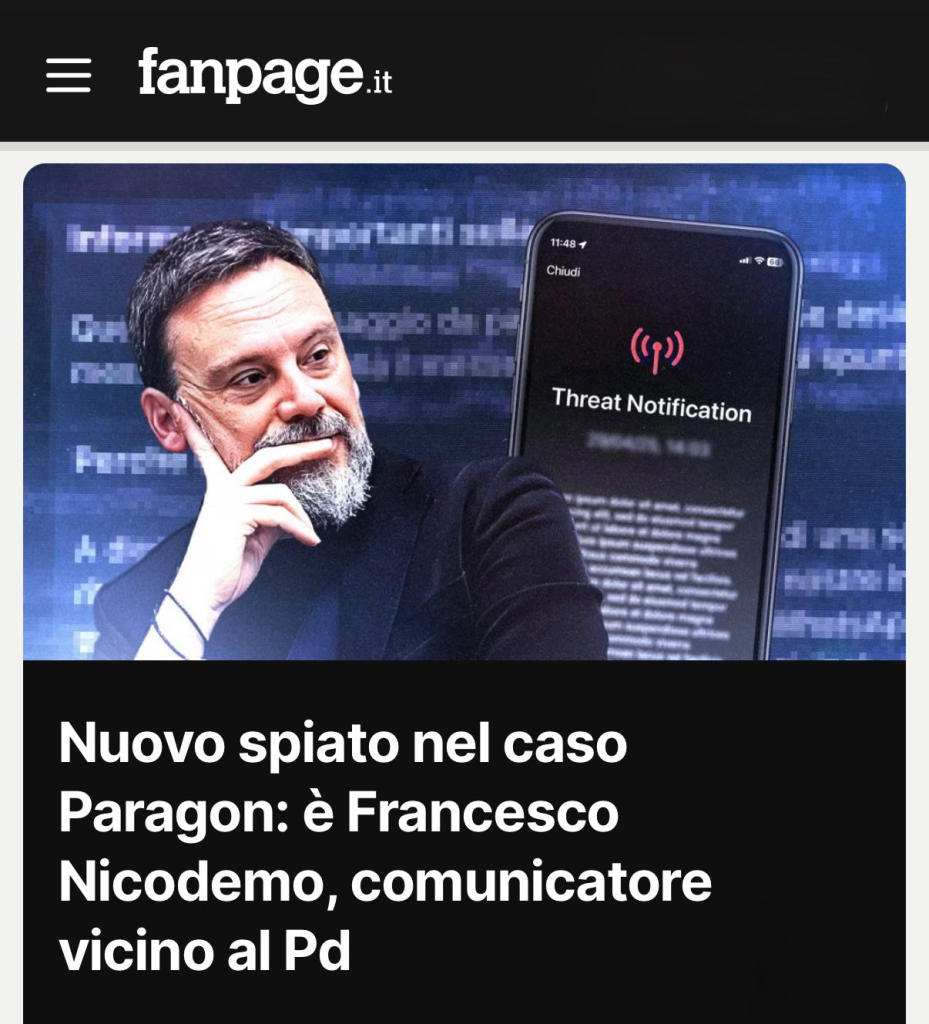
Italian Political Consultant Francesco Nicodemo Targeted with Paragon Spyware
Key Takeaways
- Target identified: Francesco Nicodemo, an Italian political consultant associated with left-wing politicians, has been allegedly targeted by Paragon spyware.
- Notification: Nicodemo was notified of the targeting attempt via a WhatsApp message in January, as part of a broader campaign.
- Ongoing scandal: It is part of an ongoing spyware scandal in Italy, which has already implicated journalists, activists, and business executives.
Francesco Nicodemo, a political consultant with ties to Italy's center-left Partito Democratico (Democratic Party), has publicly announced that he was targeted with spyware technology developed by the Israel-based, U.S.-owned company Paragon.
Broader Implications of Paragon Spyware in Italy
In a statement on November 6 cited by TechCrunch, Nicodemo revealed he was among the several people notified by WhatsApp in January about the attempt on his device. However, it remains unclear who specifically targeted Nicodemo.
“It is time to ask a very simple question: Why? Why me? How is it possible that such a sophisticated and complex tool was used to spy on a private citizen, as if he were a drug trafficker or a subversive threat to the country?” Nicodemo said.
This pattern of Paragon spyware targeting challenges the narrative that such tools are used exclusively for legitimate national security purposes and highlights significant cybersecurity concerns regarding political surveillance.
This revelation brings another dimension to the ongoing spyware scandal in Italy, raising serious questions about the use of powerful surveillance tools against private citizens involved in the political sphere, rather than just criminals or terrorists.
Cybersecurity Concerns and Responses to Paragon Spyware
The incident places renewed scrutiny on Paragon and its government clients. Researchers from The Citizen Lab have emphasized the need for clarity from both the Italian government and Paragon to understand the full scope of the spyware's use.
The case of the Italian political consultant surveillance underscores the potential for abuse of powerful surveillance technologies and the inherent risks they pose to democratic processes and individual privacy.
The targeting of Nicodemo is part of a wider campaign that has affected multiple individuals across Italian society. An Italian parliamentary committee, COPASIR, confirmed in June that some of these individuals were lawfully targeted by the country's intelligence agencies. Previous victims include journalists and immigration activists.
In June, Paragon targeted Italian investigative journalists Ciro Pellegrino and Francesco Cancellato, who work at Fanpage, and cut ties with the Italian government amid a Graphite scandal. Concurrently, seven hacked phones were investigated in a surveillance case, including one belonging to the Dagospia owner, Roberto D’Agostino.









